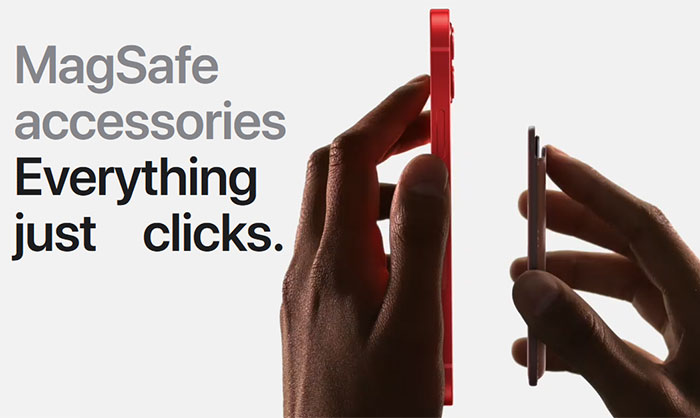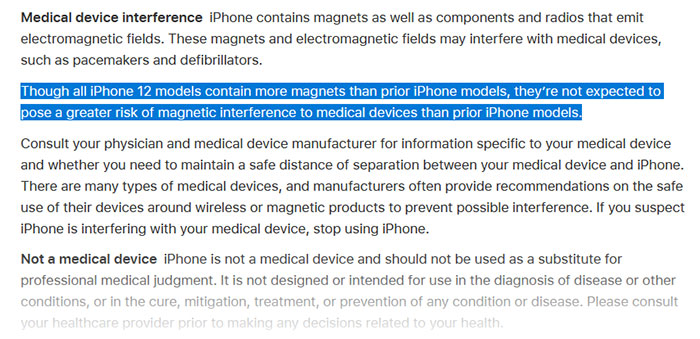The British Heart Rhythm Society (BHRS) has highlighted a problem, or one could say a considerable danger, for patients with high risk cardiac conditions replying on an ICD (pacemaker). Briefly, the MagSafe feature of the latest Apple iPhone 12 range is strong enough to suspend the life saving features of the implanted ICD if you place this smartphone in your breast pocket.
An ICD is an 'Implantable Cardioverter Defibrillator' and contains a battery, capacitors, sensing/ pacing circuit together with an intra-or extra-cardiac lead. Importantly all ICDs contain a switch which responds to an externally applied magnetic field. The switch toggles the high voltage shock therapy for ventricular tachycardia and ventricular fibrillation.

At the October launch of the iPhone 12 series of smartphones Apple made a big deal of its MagSafe technology as a special desirable feature. The idea is that a circular arracy of magnets in the rear of the phone allows for easy to place optimal wireless charging at up to 15W. Moreover, Apple and its accessory making partners have further plans for the magnetic connector like; cases, wallets, with more to come.

The BHRS refers to a study where a patient with a Medtronic ICD experienced immediate suspension of ICD therapies when the iPhone 12 was brought close to the left chest area. Worryingly it was easy to reproduce the effect: "This was reproduced multiple times with different positions of the phone over the pocket," notes the BHRS blog. Meanwhile, other contemporary studies have shown minimal risk of electromagnetic interference with ICDs and prior smartphones without MagSafe magnetic arrays.

Apple's support website does mention potential magnetic interference with iPhones and medical devices but says that "Though all iPhone 12 models contain more magnets than prior iPhone models, they’re not expected to pose a greater risk of magnetic interference to medical devices than prior iPhone models."






